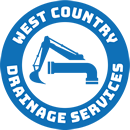The rainy season is just around the corner, so homeowners must start preparing their drainage systems now.
Improving your drainage system before the rain starts falling can help prevent flooding and water damage. Here are a few tips on how to improve your drainage system.
Inspect Your Drainage System to See If There Are Any Clogs or Obstructions
Clogged drains can cause a lot of problems in your home.
A drain that isn’t working properly can damage your pipes, and eventually, a clog can cause your pipes to burst, which can lead to a lot of water damage. Furthermore, clogged drains can lead to bad smells in your home.
A clogged drain can also waste a lot of water, which can be expensive, so it’s crucial to inspect your home’s drainage system regularly.
You can do this by inspecting your drains every month or every few months. By inspecting your drainage system regularly, you can prevent any problems from arising and catch any problems early before they get worse and cause serious damage to your home.
If your drainage isn’t working the way it should, you can immediately call a specialist company to fix the problem and prevent further damage.
Clean Out the Gutters, Downspouts, and Drainage Pipes of Any Debris
While keeping up with regular maintenance on your drainage systems, it is important to clear any debris from the gutters, downspouts, and drainage pipes too.
If your drainage gets blocked or covered with leaves and debris, it can lead to flooding and water leaking into your home. Therefore, you must ensure that you regularly remove any debris from your drainage.
This can prevent any blockages from forming and prevent water from overflowing and causing damage to your home. So make sure you regularly clear your gutters and drainage systems of leaves and debris.
Ensure Your Home’s Grade Slopes Away From Its Foundation
Many homes are built with a grade that slopes away from the foundation so water can easily flow away from home.
However, it’s important to make sure that the grade extends at least 4 feet from the foundation so that water won’t flow back toward the home and cause flooding. It’s also important to ensure the slope is sloped away from all downspouts that drain water from the roof.
If the grade slopes away from one downspout but not another, water will drain toward the foundation, and the water will pool around the downspout that doesn’t have a slope. This can cause flooding and structural damage to the home.
Rain Barrels Are an Effective Means of Collecting Roof Runoff
A rain barrel is a container that catches rainwater from your roof and stores it for later use.
It collects water that would otherwise runoff into storm drains and eventually into the ocean, causing pollution. Rain barrels can also reduce flooding because they slow the flow of water when it rains and allow it to soak into the ground instead of gushing out all at once.
Rain barrels are easy to install and require very little maintenance. To collect runoff from your roof, you must attach the rain barrel to your gutters and divert water into it when it rains.
Add Extra Mulch Around Plants and Trees to Help Absorb Excess Water
In addition to clearing your gutters of leaves and other debris every fall, you can add mulch around your plants.
Mulch helps the soil retain moisture, which reduces the amount of water that drains into your gutters and runs off into the earth. This can help to keep your drainage systems free from blockages and help to prevent flooding.
Keep an Eye on Weather Forecasts and Be Prepared for Heavy Rains
It’s important to make sure you take the necessary steps to maintain your drainage systems before the rainy season arrives to avoid the risk of having your home flooded by heavy rain.
The drainage systems of your home are some of the most important parts that should always be maintained because, without them, your home would be plagued with various issues that would bring you down. With these tips in mind, you can prepare for any heavy downpours ahead of time.
Conclusion
If you live in a district prone to heavy rains, it’s essential to take extra steps to protect your home from water damage.
Inspecting your drainage system and taking some simple precautions can help ensure that your property stays in good shape even during bad weather.
Contact us today for additional details on how we can help keep your home safe from the dangers of excess water.

